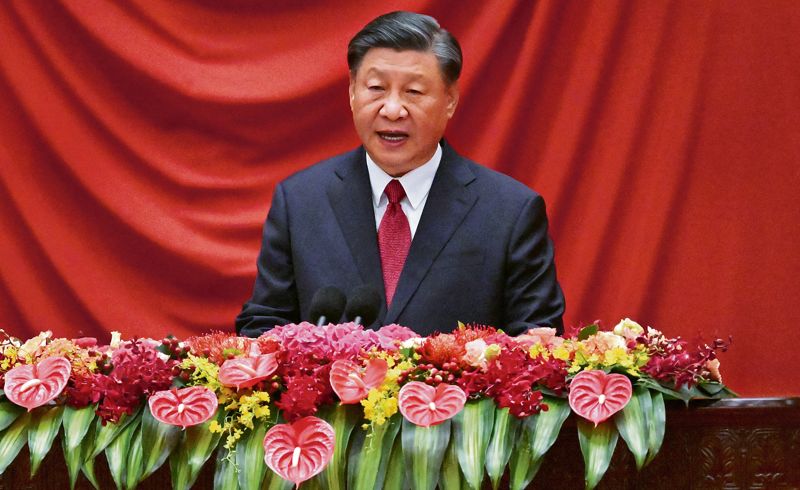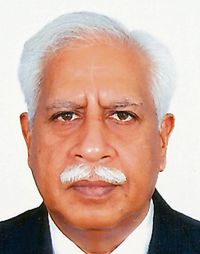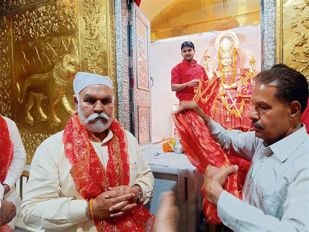
Challenge: Xi Jinping-led China is searching for a new economic growth model. Reuters
Jayadeva Ranade
President, Centre for China Analysis and Strategy
CHINA’s long-awaited Central Financial Work Conference was held in Beijing on October 30-31, and it was the first of its kind since the establishment of both the Central Financial Commission and the Central Financial Working Committee. It is China’s apex economic body and lays down the economic policy for the next five years. Considering the decline in China’s economic growth, Chinese economists, provincial government officials and others expected that the once-in-five-years central conference would take steps for stimulating and reviving the economy. They expected that measures would include infusing large sums into sectors like real estate. While the conference did take some steps, it instead emphasised ‘security’ and ‘development’, which were the policy guidelines set by Chinese President Xi Jinping for his third term at the 20th Party Congress.
Xi and Chinese Premier Li Qiang delivered ‘important’ speeches at the conference, which was attended by all members of the Politburo Standing Committee, heads of provincial governments, economic ministries and others. China’s authoritative news agency Xinhua highlighted that the conference stressed “that finance is the bloodline of the national economy” and “an important part of the core competitiveness of the country”. It mandated improvement of the financial system and urged the government to focus on “financial development with Chinese characteristics and provide strong support for the construction of a strong country with the Chinese-style modernisation and the national rejuvenation of the country in an all-rounded way”.
The Chinese Communist Party (CCP)’s leadership over the economy was stressed. It emphasised that the CCP “has combined Marxist financial theories with the concrete realities of contemporary China and with the excellent traditional Chinese culture”. It stressed the necessity of adhering “to the centralised and unified leadership of the CCP Central Committee over the work of the financial sector, and to adhere to the people-centred value orientation”. It said “to do a good job in financial work, we must adhere to and strengthen the overall leadership of the party, take Xi’s thought of socialism with Chinese characteristics in the new era as the guide, fully implement the spirit of the 20th CPC National Congress ….”. There was particular emphasis on science and technology finance, green finance, inclusive finance, pension finance and digital finance.
The 114-word resolution of the two-day Central Financial Work Conference established a new party-led Central Financial Commission, to oversee government institutions such as the People’s Bank of China and China Securities Regulatory Commission. Vice Premier He Lifeng was appointed the Office Director of the Communist Party’s Central Financial and Economic Affairs Commission, which has been set up to strengthen the party’s control of the country’s $61-trillion financial industry. He Lifeng is one of the top economic advisers to Xi. An indication of their proximity is that he accompanies Xi on all his tours inside China and abroad.
Just weeks prior to the Central Finance and Economic Work Conference, it was revealed that China’s former economic tsar and Vice Premier, Liu He, retained oversight of the important office of the Central Financial and Economic Affairs Commission, which is chaired by Xi. Liu He, a close personal friend of Xi, continues to be a key economic adviser.
Indications that Xi intends to maintain tight control over the financial sector were his visits — for the first time ever — to the People’s Bank of China (PBoC) and the State Administration of Foreign Exchange (SAFE) on October 24. His visits came just a week before the Central Finance and Economic Work Conference. Chinese analysts remain divided on whether Xi’s visits imply that some policy palliatives are planned, or are a message to the PBoC and SAFE to strengthen party leadership and further clean up the financial system. A day earlier on October 23, Xi visited the Shanghai Stock Exchange and stated that A-shares are stable and improving, and there is no need for bailout policies.
On November 6, China’s Nanfang Ribao (Southern Daily) said the conference for the first time proposed the goal of building a ‘financial power’ and strengthening the centralised and unified leadership of the Party Central Committee on financial work. It asserted that the name was changed from the previous ‘National Financial Work Conference’ to the Central Financial Work Conference to highlight the centralised and unified leadership of the party on financial work. Noting that “financial chaos and corruption continue to occur, and financial supervision and governance capabilities are weak”, it said the conference called for determination to fundamentally solve these problems. It emphasised the need to strengthen and effectively improve financial supervision.
Chinese observers are disappointed that the Central Financial Work Conference avoided addressing issues afflicting China’s economy, namely, encouraging private entrepreneurs, the problem of debts of provincial governments and the near bankruptcy of major real estate companies. The focus was more on security, followed by development and centralisation and supervision of financial work. A suggestion of the prevailing sentiment among China’s private entrepreneurs was expressed at a Xinhua Roundtable on November 13. While Wei Dong, head of the National Development and Reform Commission’s newly established Bureau for Private Economy Development, spoke of “strong support to China’s private economy”, the 77-year old founder of the Hangzhou Wahaha Group, Zong Qinghou, said: “For Chinese entrepreneurs, it is essential to be patriotic, to innovate continuously and to care for employees. Only in this way can private firms thrive.” The next few weeks and months will show whether the Chinese leadership will unveil plans to separately address such specific issues.
Join Whatsapp Channel of The Tribune for latest updates.



























